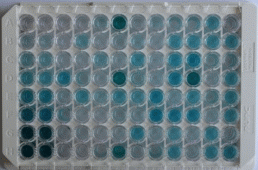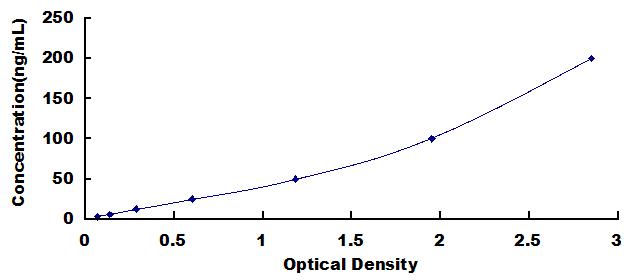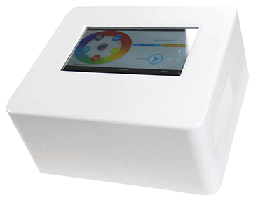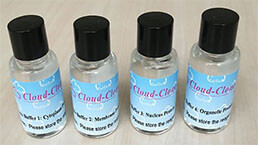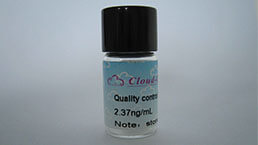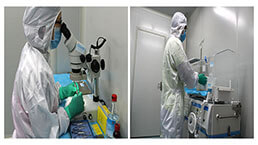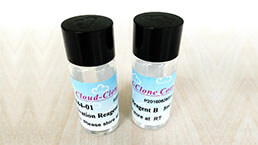Packages (Simulation)

Reagent Preparation

Image (I)
Image (II)
Certificate


Wide-range ELISA Kit for Lipoprotein lipase (LPL)
LIPD; Lipase, Lipoprotein
- Product No.WEA386Mu
- Organism SpeciesMus musculus (Mouse) Same name, Different species.
- Sample TypeSerum, plasma, tissue homogenates, cell lysates, cell culture supernates and other biological fluids
- Test MethodDouble-antibody Sandwich
- Assay Length3h
- Detection Range3.12-200ng/mL
- SensitivityThe minimum detectable dose of this kit is typically less than 1.17ng/mL.
- DownloadInstruction Manual
- UOM 48T96T 96T*5 96T*10 96T*100
- FOB
US$ 431
US$ 616
US$ 2772
US$ 5236
US$ 43120
For more details, please contact local distributors!
Specificity
This assay has high sensitivity and excellent specificity for detection of Wide-range Lipoprotein lipase (LPL).
No significant cross-reactivity or interference between Wide-range Lipoprotein lipase (LPL) and analogues was observed.
Recovery
Matrices listed below were spiked with certain level of recombinant Wide-range Lipoprotein lipase (LPL) and the recovery rates were calculated by comparing the measured value to the expected amount of Wide-range Lipoprotein lipase (LPL) in samples.
| Matrix | Recovery range (%) | Average(%) |
| serum(n=5) | 82-93 | 87 |
| EDTA plasma(n=5) | 83-101 | 86 |
| heparin plasma(n=5) | 88-104 | 98 |
Precision
Intra-assay Precision (Precision within an assay): 3 samples with low, middle and high level Wide-range Lipoprotein lipase (LPL) were tested 20 times on one plate, respectively.
Inter-assay Precision (Precision between assays): 3 samples with low, middle and high level Wide-range Lipoprotein lipase (LPL) were tested on 3 different plates, 8 replicates in each plate.
CV(%) = SD/meanX100
Intra-Assay: CV<10%
Inter-Assay: CV<12%
Linearity
The linearity of the kit was assayed by testing samples spiked with appropriate concentration of Wide-range Lipoprotein lipase (LPL) and their serial dilutions. The results were demonstrated by the percentage of calculated concentration to the expected.
| Sample | 1:2 | 1:4 | 1:8 | 1:16 |
| serum(n=5) | 90-104% | 87-104% | 84-102% | 88-104% |
| EDTA plasma(n=5) | 85-94% | 86-93% | 92-105% | 96-105% |
| heparin plasma(n=5) | 81-102% | 78-97% | 92-101% | 78-105% |
Stability
The stability of kit is determined by the loss rate of activity. The loss rate of this kit is less than 5% within the expiration date under appropriate storage condition.
To minimize extra influence on the performance, operation procedures and lab conditions, especially room temperature, air humidity, incubator temperature should be strictly controlled. It is also strongly suggested that the whole assay is performed by the same operator from the beginning to the end.
Reagents and materials provided
| Reagents | Quantity | Reagents | Quantity |
| Pre-coated, ready to use 96-well strip plate | 1 | Plate sealer for 96 wells | 4 |
| Standard | 2 | Standard Diluent | 1×20mL |
| Detection Reagent A | 1×120µL | Assay Diluent A | 1×12mL |
| Detection Reagent B | 1×120µL | Assay Diluent B | 1×12mL |
| TMB Substrate | 1×9mL | Stop Solution | 1×6mL |
| Wash Buffer (30 × concentrate) | 1×20mL | Instruction manual | 1 |
Assay procedure summary
1. Prepare all reagents, samples and standards;
2. Add 100µL standard or sample to each well. Incubate 1 hours at 37°C;
3. Aspirate and add 100µL prepared Detection Reagent A. Incubate 1 hour at 37°C;
4. Aspirate and wash 3 times;
5. Add 100µL prepared Detection Reagent B. Incubate 30 minutes at 37°C;
6. Aspirate and wash 5 times;
7. Add 90µL Substrate Solution. Incubate 10-20 minutes at 37°C;
8. Add 50µL Stop Solution. Read at 450nm immediately.
GIVEAWAYS
INCREMENT SERVICES
| Magazine | Citations |
| Diabetes | Severity of Diabetes Governs Vascular Lipoprotein Lipase by Affecting Enzyme Dimerization and Disassembly PubMed: 21646389 |
| The Korean Journal of Internal Medicine | Clinical efficacy of serum lipase subtype analy-sis for the differential diagnosis of pancreatic and non-pancreatic lipase elevation Pubmed:27243230 |
| The Journal of Lipid Research | ReCavia (Guinea pig )lation of Plasma Lipid Homeostasis by Hepatic Lipoprotein Lipase in Adult Mice Pubmed:27234787 |
| Journal of Functional Foods | Polysaccharides from Cyclocarya paliurus: Chemical composition and lipid-lowering effect on rats challenged with high-fat diet 10.1016/j.jff.2017.07.020 |
| Biotechnology Progress | Mass Spectrometric Evaluation of Upstream and Downstream Process Influences on Host Cell Protein Patterns in Biopharmaceutical Products Pubmed: 30767403 |
| arteriosclerosis thrombosis and vascular biology | Integrin β3 Deficiency Results in Hypertriglyceridemia Via Disrupting LPL (Lipoprotein Lipase) Secretion Pubmed: 32237906 |
| Clinical Nutrition ESPEN | Abdominal fat distribution modulates the metabolic effects of exogenous ketones in individuals with new-onset prediabetes after acute pancreatitis: Results from a randomized placebo-controlled trial 34024503 |
| Antioxidants | Bio-Evaluation of the Wound Healing Activity of Artemisia judaica L. as Part of the Plant's Use in Traditional Medicine; Phytochemical, Antioxidant, Anti-Inflammatory … Pubmed:35204215 |
| Catalog No. | Related products for research use of Mus musculus (Mouse) Organism species | Applications (RESEARCH USE ONLY!) |
| RPA386Mu01 | Recombinant Lipoprotein lipase (LPL) | Positive Control; Immunogen; SDS-PAGE; WB. |
| RPA386Mu02 | Recombinant Lipoprotein lipase (LPL) | Positive Control; Immunogen; SDS-PAGE; WB. |
| PAA386Mu02 | Polyclonal Antibody to Lipoprotein lipase (LPL) | WB; IHC; ICC; IP. |
| PAA386Mu01 | Polyclonal Antibody to Lipoprotein lipase (LPL) | WB; IHC; ICC; IP. |
| SEA386Mu | ELISA Kit for Lipoprotein lipase (LPL) | Enzyme-linked immunosorbent assay for Antigen Detection. |
| WEA386Mu | Wide-range ELISA Kit for Lipoprotein lipase (LPL) | Enzyme-linked immunosorbent assay for Antigen Detection. |
| LMA386Mu | Multiplex Assay Kit for Lipoprotein lipase (LPL) ,etc. by FLIA (Flow Luminescence Immunoassay) | FLIA Kit for Antigen Detection. |
| KSA386Mu01 | ELISA Kit DIY Materials for Lipoprotein lipase (LPL) | Main materials for "Do It(ELISA Kit) Yourself" |

